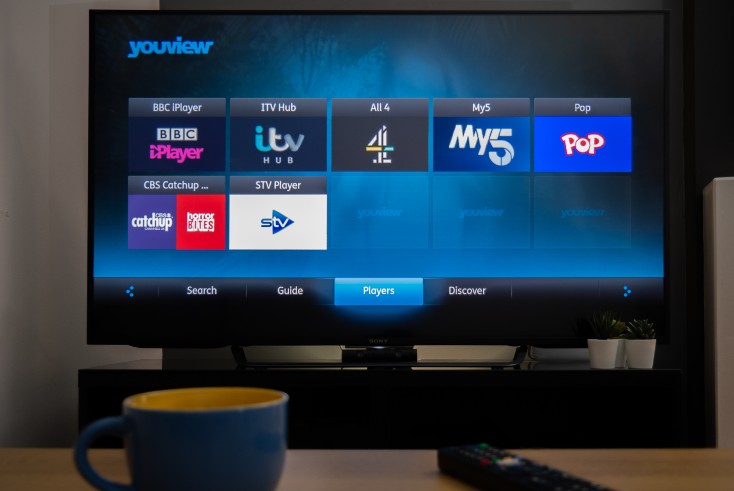PSB prominence and the Draft Media Bill: too little too late?

Opinion
A reimagining of PSB “due prominence” for the digital and streaming era is needed. But is it too little, too late as part of the Draft Media Bill?
The UK Draft Media Bill published on 29 March finally deals with an issue that public service broadcasters (PSBs) have long been lobbying over: a re-imagining of due prominence for the digital age.
PSBs receive public support including in the form of “due prominence” in return for certain public service programming commitments. The provision of this content, including news and current affairs, is important for a healthy democracy, but doesn’t necessarily draw viewers in and excite advertisers in the way more commercial content such as Succession and Love Island do. Accordingly, PSB content needs to be easier for viewers to find.
That’s why the statutory requirement was introduced, meaning that that the PSB channel services are required to be given ‘due prominence’ on electronic programme guides. This is easily regulated in the old-fashioned world of linear television. PSBs occupy the top spots on the programme listings on Freeview, Sky, Virgin Media and any other platforms with significant reach.
However, when Channel 4 launched the UK’s first on-demand service in 2006 in 4oD, there was no accompanying obligation requiring carriers of the service to provide it with ‘due prominence’. That has not changed. The market, however, has.
There has been a significant decline in traditional linear viewing since 2001, including a staggering 68% decrease among 16-24-year-olds and a net reduction of 25%. Given the dominance of major US subscription services in the UK market, the emergence of combined and independent streaming options, TV manufacturers’ own FAST channel suites, and the multitude of new linear and VOD services, the Government’s quid pro quo support has lost its relevance and value.
Warnings not heeded
The House of Lords Communications Committee observed as long ago as 2012 that one risk of digital convergence was a fragmentation of audiences and revenues, which would adversely impact investment in high production value content. Ofcom also spotted the trend a decade ago that, while linear viewing still predominates, new “non-linear” ways of finding content (searching, time-shifting), would gradually reduce the significance of the linear electronic programme guide.
At the time, Ofcom also recognised that if maintaining the prominence of public service content was to remain a public policy objective, extending “due prominence” requirements to the new ways content could be discovered was necessary. The television regulator noted that without this step, the value of “due prominence” on electronic programming guides for PSBs would decline, and the legislation would fail in its intention.
Subsequently, a 2012 report commissioned by the BBC found that PSBs would have to fight even harder for shelf space than in the multi-channel world, with global operators unsympathetic to the UK’s public policy and cultural goals where they diverged from their own commercial interests. All of which is to say that it has long been clear that the existing regulatory framework is not fit for purpose.
Better late than never?
Finally, the Government has accepted that the recommendations made over a decade ago should now be implemented. Not least because Ofcom has indicated that the migration to on-demand viewing runs at around 5% year-on-year.
The Draft Media Bill therefore seeks to expand PSB visibility by including online, on-demand, and livestreamed content within the due prominence framework. These services will comprise BBC iPlayer and other services designated by Ofcom where the service makes a significant contribution to the fulfilment of the PSB’s public service remit; in other words, ITVX, All 4, My5, S4C’s Clic, and the STV Player.
The requirements will only capture television selection services that the Secretary of State considers are used by a “significant number” of members of the public. The explanatory notes to the Bill clarify that the Government “expects this to include popular Smart TVs and pay TV operators, as well as connected TV devices such as streaming sticks and set top boxes”.
The draft Media Bill does not specify where tiles or content will need to be placed in order to comply with the new regime though, this may be a point that Ofcom will set out in a code of practice. It is difficult therefore to predict how this will be implemented given that some television selection services are experimenting with losing the clutter of tiles altogether in favour of more simply promoting the content that users want to watch, wherever this comes from, based on its user viewing data and recommendations algorithms. So it may not be as simple as requiring relevant services to have a primary PSB carousel and a secondary carousel for other streaming services or, to have larger tiles for PSB services.
In its submission to a Commons cross-party select committee, the BBC has called for TV manufacturers to be forced to add a dedicated on-demand button to their remote controls that takes viewers to the PSBs streaming services. The BBC believes that remote controls are a major gateway to content on TV sets and user interfaces — their importance being demonstrated by fierce competition between the largest content providers for branded buttons. However, TV hardware, including remote controls, is not currently within the scope of the draft Media Bill.
Ultimately, it remains to be seen whether regulatory indolence on this issue means that this is too little, too late, to ensure that PSB content is more easily discovered and, for commercial PSBs, to drive traffic and ad revenues to support their ongoing ability to pay for the public service content which they are obliged to transmit. But whatever the result, the Government cannot wait any longer than it already has.
Nick Swimer is an entertainment & media partner at Reed Smith LLP and writes a monthly column about media law and regulation for The Media Leader.



